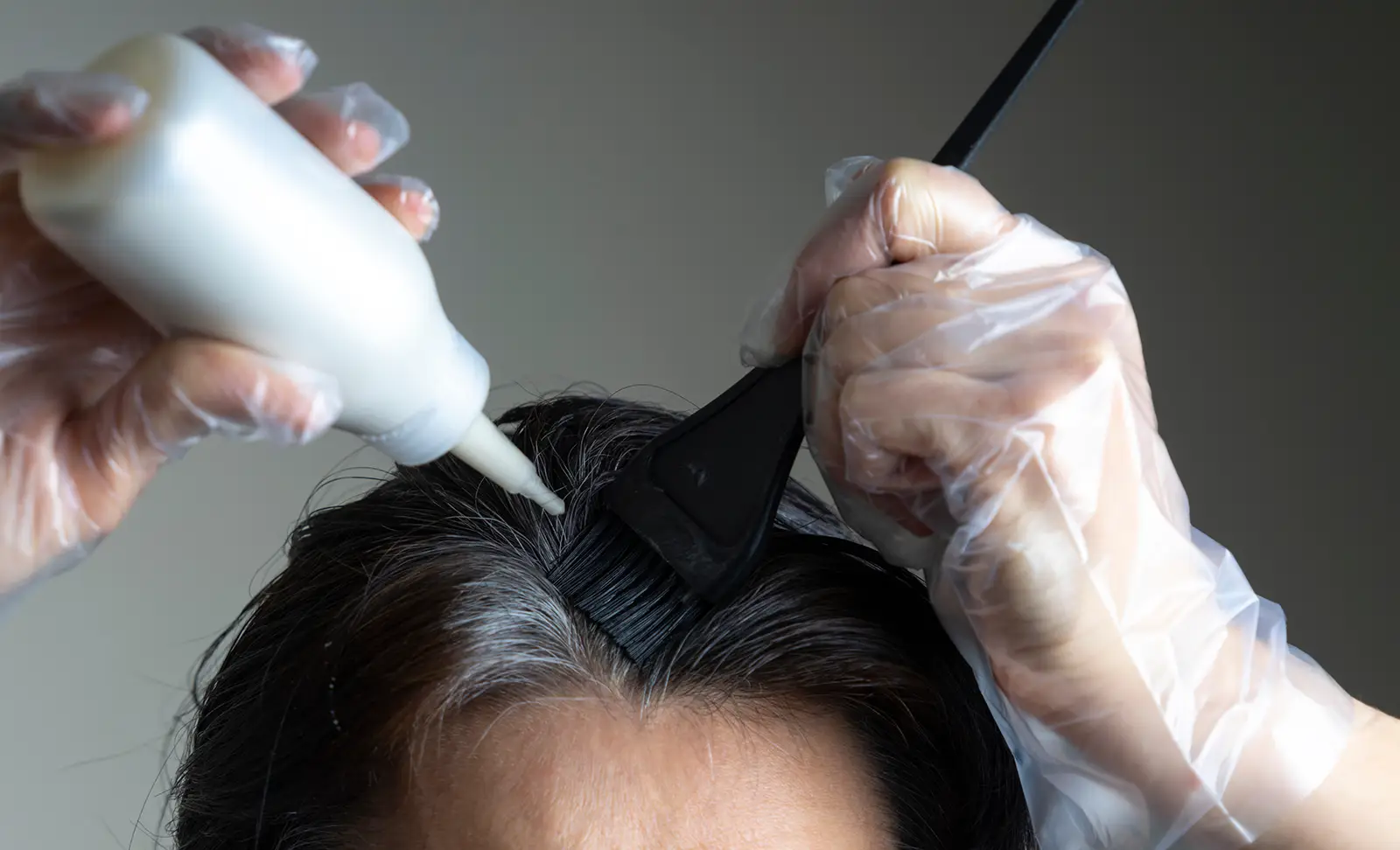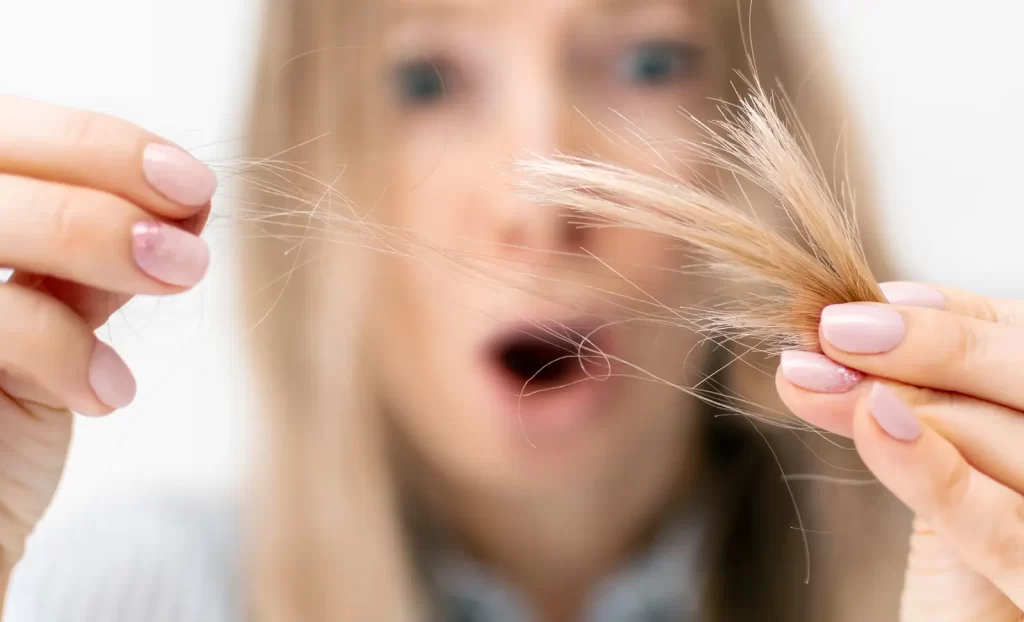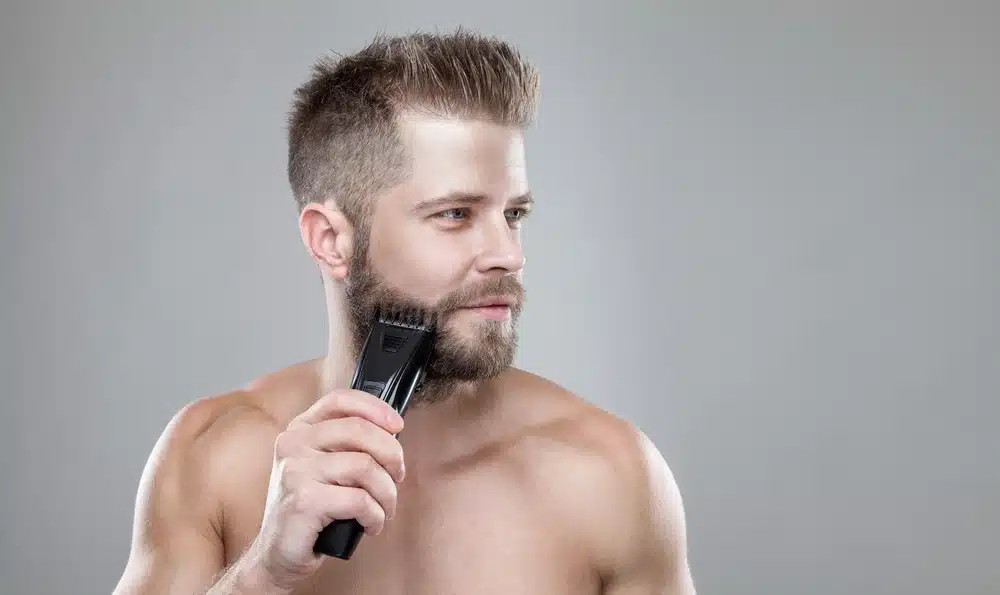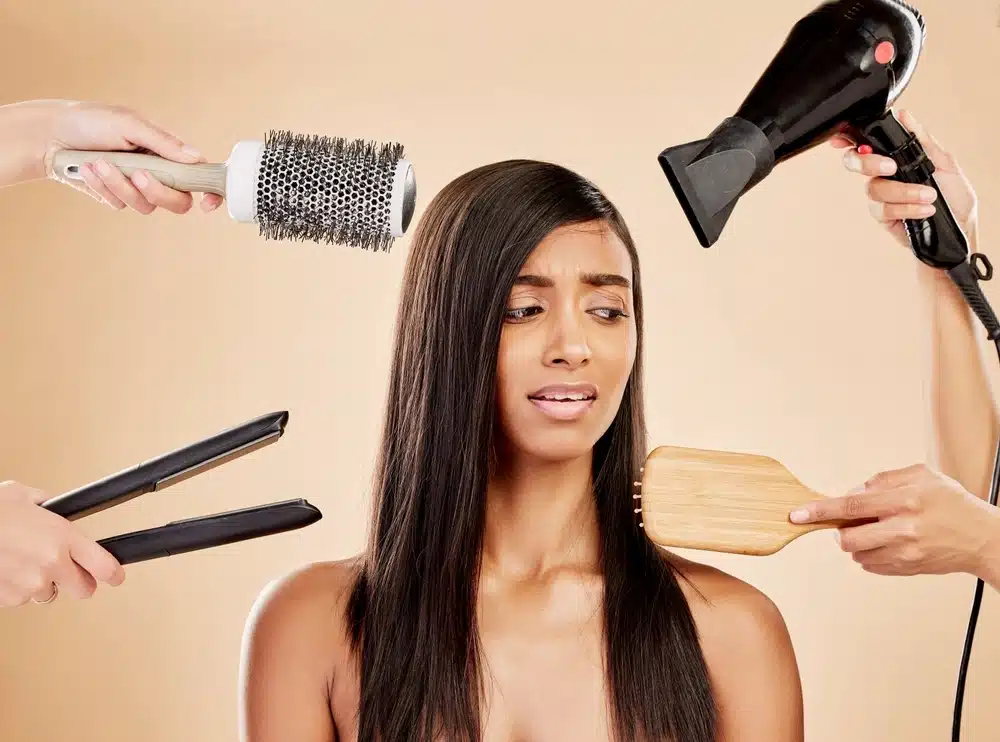It is well known that hair dye can damage your hair, especially when dyeing your hair a very light colour. There is also a chance that using hair dye improperly can even lead to hair loss, often because the harsh chemicals in hair dye, such as peroxide and ammonia, cause breakage. In some cases, hair dye can even damage the hair follicles and prevent new hair from growing.
- Can Hair Dye Cause Hair Loss? Yes – hair dye can definitely cause hair loss, especially if the individual dyes their hair too often, leaves it on too long, or tries to go much lighter in a short duration.
- Why Does Hair Dye Cause Hair Loss? Hair dye causes hair loss because of the chemicals present in the hair, such as ammonia and peroxide. These chemicals are very harsh and can cause breakage. It can even irritate the scalp and damage the follicles.
- How Can You Prevent Hair Loss from Hair Dye? There are a few ways to prevent hair loss when dyeing your hair, such as using an ammonia-free hair dye, always going to the hairdresser’s, and not dyeing your hair as often. It’s also important to always do a patch test first.
- Will Hair Dye Always Lead to Hair Loss? No, dyeing your hair does not 100% lead to hair loss. Many people can dye their hair and keep healthy locks.
Changing your hair colour is a truly powerful act. It’s sheer creativity in the bottle in your hands. Of course, the actual act of shifting shades is tough on your hair. It takes a lot to change your hair from one colour to another. It’s even more difficult to take your hair from a darker colour to a lighter one.
Still, it’s all possible, but that doesn’t mean it doesn’t take a toll on your scalp or hair strands. There are so many horror stories about dye jobs gone wrong on the internet, even for those who have gone to a professional salon.
So, what’s the deal, you may ask? Can hair dye cause hair loss? Let’s get into it:
How Does Hair Dye Change Your Hair?
Hair dye works in one of two ways. For semi-permanent dyes, the colouring coats your hair, which is why, over time, it slowly starts to wash out and fade more easily. With a permanent hair dye the colour bonds to the hair itself at the cuticle and cortex level.
There are no restrictions on the type of dye you can use, either. You can pick up a semi-permanent dye or permanent option at the drug store or get it done at a salon. Regardless of where you go, unfortunately, there is always a risk of hair breakage and loss.
Can Hair Dye Cause Hair Loss?
The short answer is yes: hair dyes can cause hair loss. The good news is that, unlike other causes like genetics or alopecia, hair dyes don’t prevent your hair from growing in the future. What this means is that your hair loss is localized to the hair that is currently on your head. How it breaks, however, depends on the type of damage your hair has sustained during treatments.
How Hair Dye Can Affect Your Hair
It takes some rather tough chemicals to dye your hair. Sometimes, damage happens after just one treatment. In most cases, however, regular dyeing (which is needed if you want to maintain a full head of the same colour) is what does it. So, how does hair dye cause hair loss? In one of two ways:
Chemical Damage
The chemicals used in permanent dyes like ammonia and hydrogen peroxide are very harsh. You’ll notice hair shedding at least (especially if you use a lightening agent like hydrogen peroxide) [1]. This chemical damage can make the hair brittle and cause breakage up along the hair shaft.
Scalp Irritation
Some people are allergic to the dyes themselves. If you are, then putting the dyes directly on your scalp (in order to dye the roots) can cause allergic reactions that lead to hair breakage right at the root. This is what can cause hair loss.
How Often is Safe to Dye Hair?
Like with everything, moderation is key when it comes to safely dyeing your hair. This is because hair can typically withstand the chemicals used in hair dye in small doses. A single treatment is unlikely to cause serious hair breakage or loss.
Regular use, however, is another story. Regular redyeing can cause hair and scalp irritation. It can also keep making your hair more brittle (especially if you’re trying to keep a lighter shade than your natural colour), which leads to breakage up the shaft.
Risky Hair Dye Ingredients That May Cause Hair Loss
There are some chemicals found in hair dyes that are worse than others when it comes to hair dye and hair loss risk. Unfortunately, these treatments also typically provide the most specific results, especially if you’re lightening your hair. While you don’t have to avoid these treatments entirely, try to limit dyeing your hair with these chemicals on a regular basis:
Ammonia
Ammonia is used to open up the hair cuticle, allowing for deep colour penetration. The process, however, can severely dry out your hair. The good news is you can regularly find ammonia-free hair dyes.
Peroxide
Hydrogen peroxide is the most effective way to lighten your hair. Using it once can make your hair dry, but regular use tends to cause hair loss.
PPD (Paraphenylenediamine)
PPD is a common colouring agent found in hair dyes. While it’s not damaging to your hair per se, many are allergic to it [2]. That scalp irritation can cause hair loss.
Parabens
Parabens are preservatives used to prolong hair colour, but can also cause scalp irritation and hair loss in those allergic to it.
Can Hair Dye Cause Hair Loss Even If You Take Precautions?
If you take all the precautions, hair dye shouldn’t cause hair loss. If it does, then the hair breakage should be minimal. Everyone, of course, is slightly different. While this may hold true for the majority, some may still find just one bout of hair dye is enough to break off their hair. That’s why it’s important to patch test before every dye job.
How to Minimise the Risk of Hair Loss Due to Hair Dye
The good news is that there are many ways that you can minimise the risk of hair loss.
Choose Gentle Formulas
There are gentle formulas that don’t feature many of the harsh chemicals in hair dyes like ammonia. These dyes, however, won’t usually produce such vivid results, or as long-lasting. The compromise here, then, is to choose a new hair colour that is a similar shade to your own, or go darker, since this is easier to achieve.
Patch Test
Always patch test. Every time, even if you’re going to the same salon or using the same brand, since companies frequently change up their formulas. To patch test, dye a small amount of hair behind your ear. You’ll want to wait between 24 hours to 48 hours.
Limit Dyeing Frequency
Limit how often you use permanent hair colour or bleaching agents on your hair. If you need a touch-up, make sure to only dye your new natural hair roots, not the whole head.
Condition Regularly
You will want to regularly deep condition treatments your colour treated hair, use hair oils, and use regular conditioner in the shower in order to keep your hair hydrated. Hair breaking off mid-shaft is typically because the hair has become so dry and brittle is snaps, so keeping it hydrated can minimize hair loss.
Track Hair Condition
The best way to understand how well your hair is doing is to track it. You can use a hair track app to monitor hair loss and even your hairline to check back and see the difference. Small amounts of breakage over time can lead to drastic hair loss, but because you slowly get used to the difference it may not immediately be noticeable to you.
Consult a Professional
If your hair loss is out of control, then you should always consult a professional. When picking who to go with, check out their patients gallery and see the results. The reason why you’ll want to do this is, if the hair loss isn’t due to hair dye but another condition, you’ll want trusted professionals on hand who can help you regain your natural hair line.
Fixes for Hair Loss
If you have experienced hair loss due to frequent hair colour dyeing or perhaps a mixture of two reasons, then there are a few different answers you can reach for, including using:
Patience and Healing
The good news is if the hair loss is solely due to the hair dye, the only thing you need to do to fix it entirely is wait for new hair growth. This takes time, but you’ll get your full head of hair back so long as you don’t dye it again.
Hair Oils
If you do regularly use hair colour products, then you’ll want to use hair oils designed to help soothe irritation on the scalp and keep the hair hydrated. Common oils like aloe vera (scalp soothers), coconut oil, rosemary oil, or even green tea (hair growth promoters) can help you maintain healthy hair and prevent breakage up the hair shaft.
Hair Loss Medication
If your hair loss is due to a mixture of issues, then you may want to get a more involved hair loss treatment like hair loss medication. This is only necessary if you have a comorbid condition. For example, if you’re dealing with alopecia and brittle hair.
Hair Loss Transplants
If your hair is thinning for any other reason than hair dye breakage, then don’t worry. With a combination of at-home treatments and a hair transplant, you can restore your healthy head of hair. You can even (eventually) start dyeing your hair again after a transplant, though you should wait for your scalp to fully heal first.
Can Hair Dye Cause Hair Loss: Key Takeaways
Hair dyes can absolutely cause hair breakage and loss. Using less harsh chemicals, spreading out treatments, and deep conditioning your hair can limit that damage, however. If hair loss keeps happening, however, or you notice your hairline receding, then the cause of your hair loss may be something else. If that’s the case, don’t worry. Simply book an appointment with our team and we’ll get to the bottom of your hair loss and help set you on the right track.
References
[1] https://pubmed.ncbi.nlm.nih.gov/30229956/ [2] https://www.ncbi.nlm.nih.gov/pmc/articles/PMC5261844/





